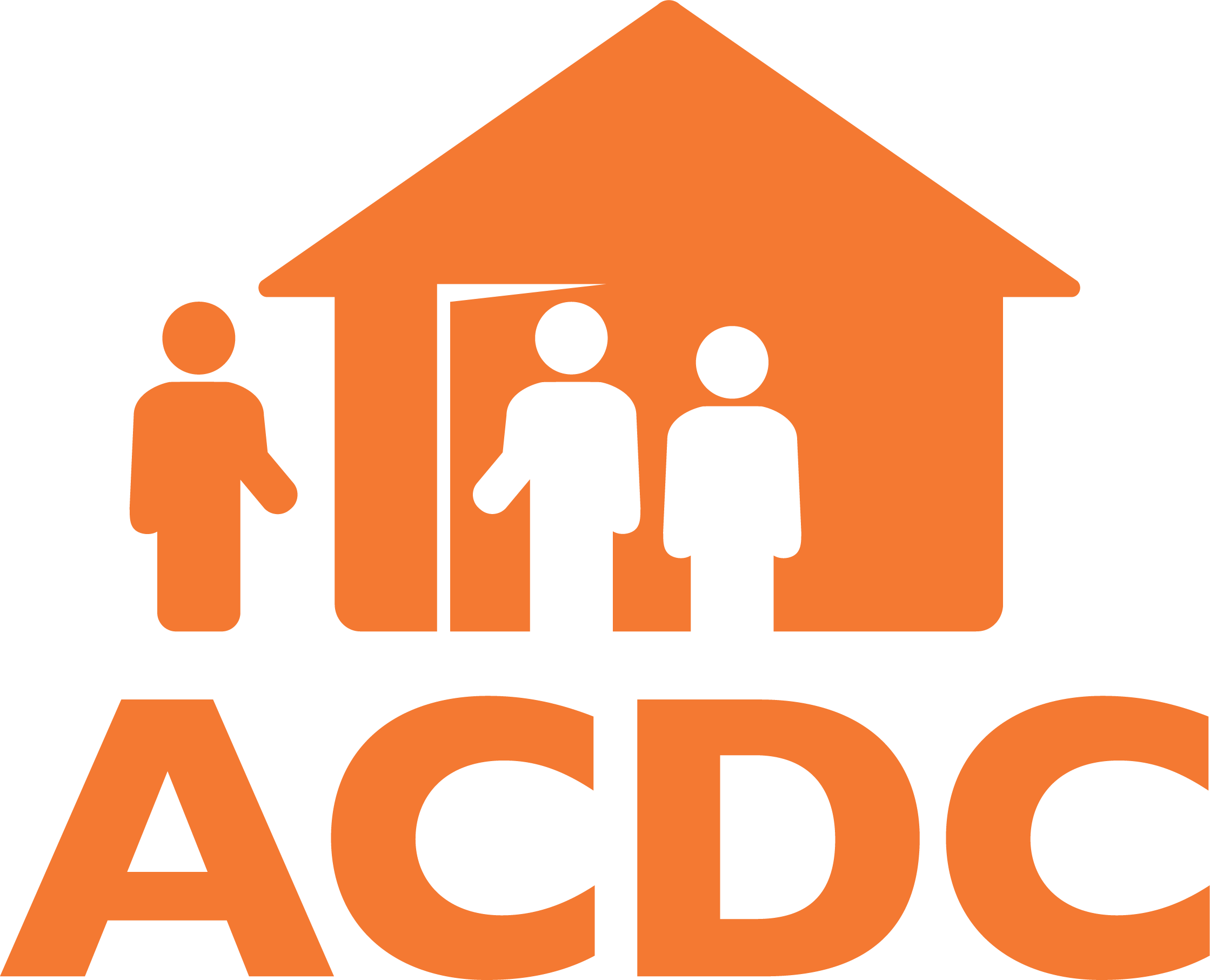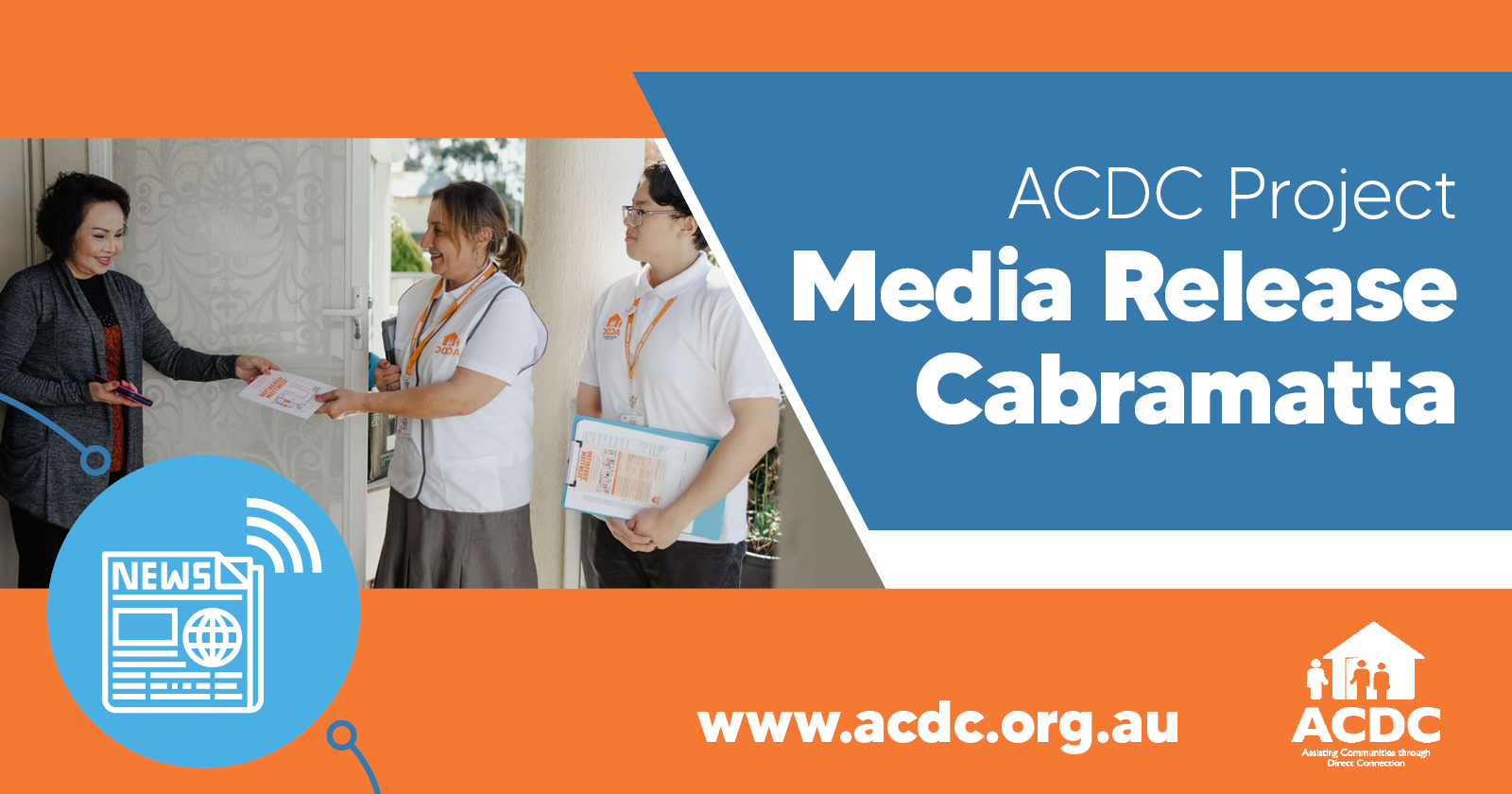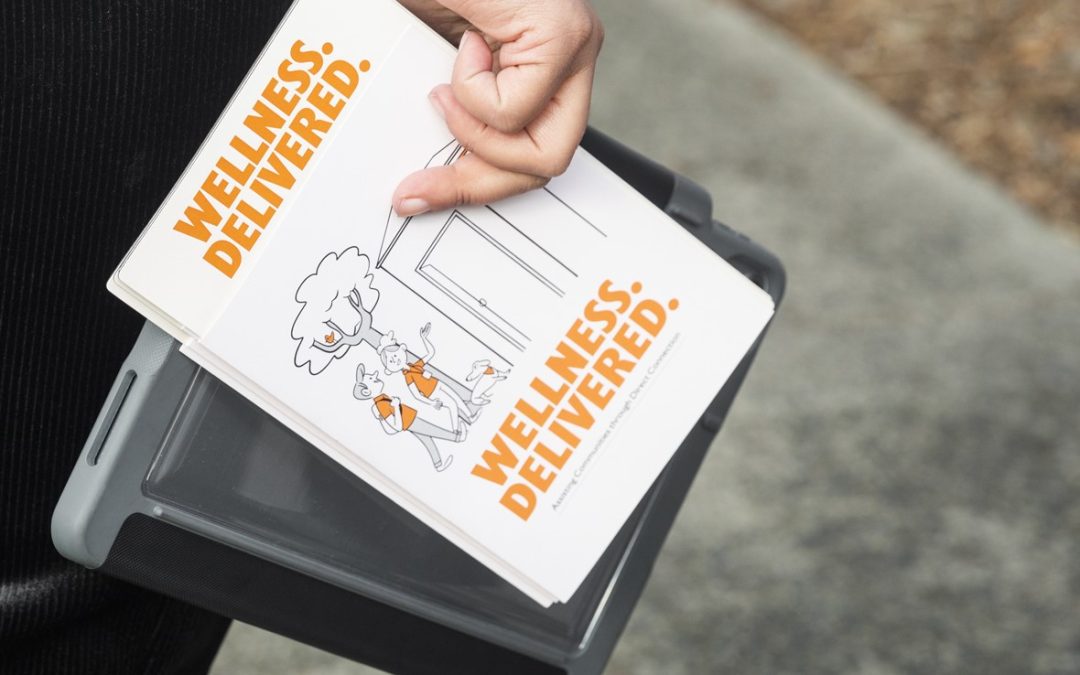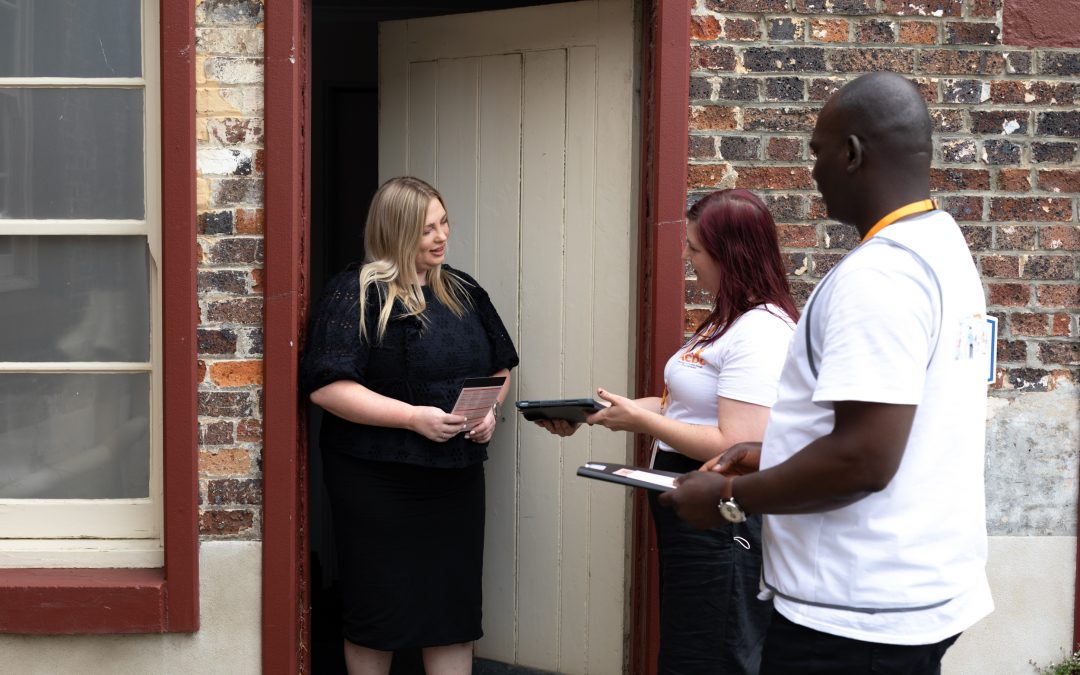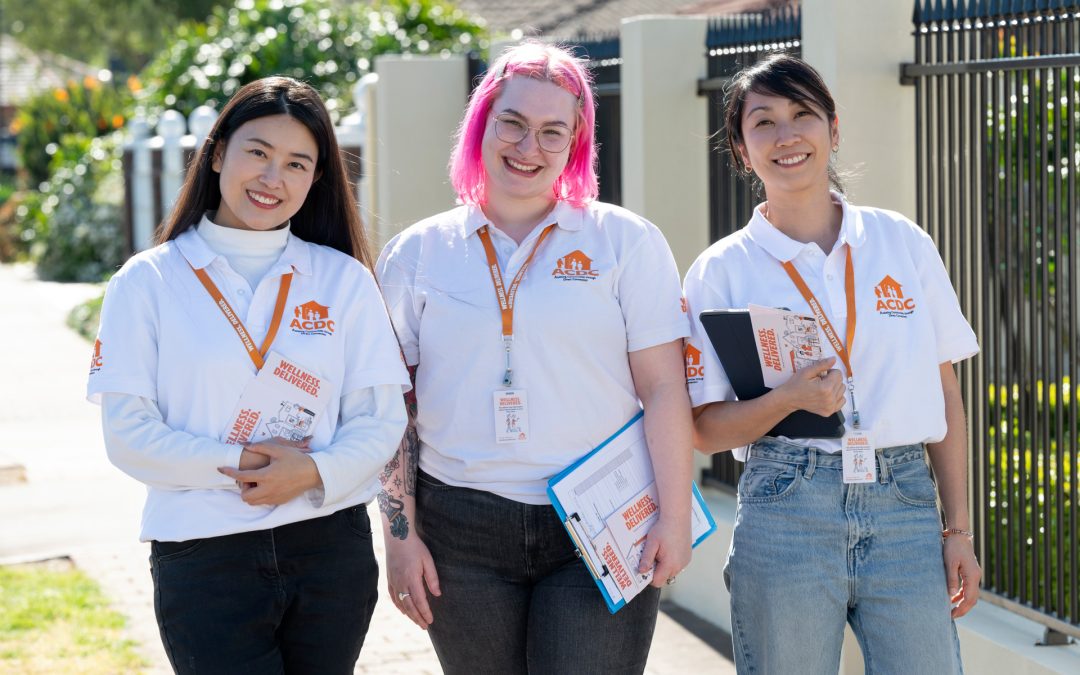Sometimes all it takes is a conversation.
A new project in Cabramatta aims to talk with community members about their mental health and help link them with wellbeing services in their area.
With the COVID-19 pandemic still affecting Australians, the Assisting Communities through Direct Connection (ACDC) Project is going door-to-door to check in with locals.
Community Mental Health Australia (CMHA) is working with local service provider, Settlement Services International (SSI), to doorknock in Cabramatta and Cabramatta West from June to August 2022.
The ACDC Project is visiting over 20 sites in Australia to improve community wellbeing and collect important data.
“Unfortunately for many reasons people do not want to talk about or even think about their mental health,” says CEO of CMHA, Bill Gye.
“People may prefer to tough it out, hide it from others, or avoid the stigma. The ACDC Project is going directly to households in Australia to engage them in conversation about these important issues.”
The ACDC Project are not typical door knockers. They make contact via friendly ‘People Connectors’ who let people know about the free services available and deliver an information pack with a fridge magnet and brochures.
People Connectors also gather feedback on any service gaps via the ACDC Survey, so that improvements can be made by local, state, and federal governments. The ACDC survey is available in English, Chinese, Arabic, Vietnamese and Italian.
Melinda Mann, Shared Services Lead for Settlement Services International, says SSI is well placed to run the project in Cabramatta.
“SSI is well connected to these communities and understands the complex challenges some households face, including access to key health services and information. In culturally and linguistically diverse communities, many with members who are new arrivals in Australia, it is important these conversations are had in first language by trusted members of their own cultural groups. Having bilingual People Connectors as part of the ACDC Project allows households to speak about sensitive matters such as mental health in their preferred language,” says Melinda.
For each of the communities visited throughout Australia, the ACDC Project will generate data and information about the reasons why people do not access support from local services. The findings of the ACDC Project evaluation report will contribute to discussions about funding for community managed mental health services in Australia, and how the mental health support needs of people in communities are delivered.
People Connector, David Hua, says Cabramatta is a community that has experienced a lot of change over the years.
“Many people we speak to have watched Cabramatta grow for over 30 years. It gives me hope that the people I talk to will be heard, and their challenges will be advocated for.”
The Project will also evaluate how effective a proactive approach is in reaching, engaging, and resourcing people to connect with services.
“The ACDC Project aims to address a serious problem with mental health services in Australia. Often, people only look for or receive support when they are in crisis. We must be much more proactive connecting and communicating with people about the importance of wellbeing. Prevention and early intervention are far more effective than dealing with people in crisis,” says Bill Gye.
The ACDC Project provides this vital information to householders of all educational, cultural and language backgrounds to promote access to mental health, social and emotional wellbeing support.
If the householder is not home a card is left in their letterbox with contact details so they can ask the People Connectors to come back.
The ACDC Project is funded by the Department of Social Services.
For more information go to www.acdc.org.au
-END-
